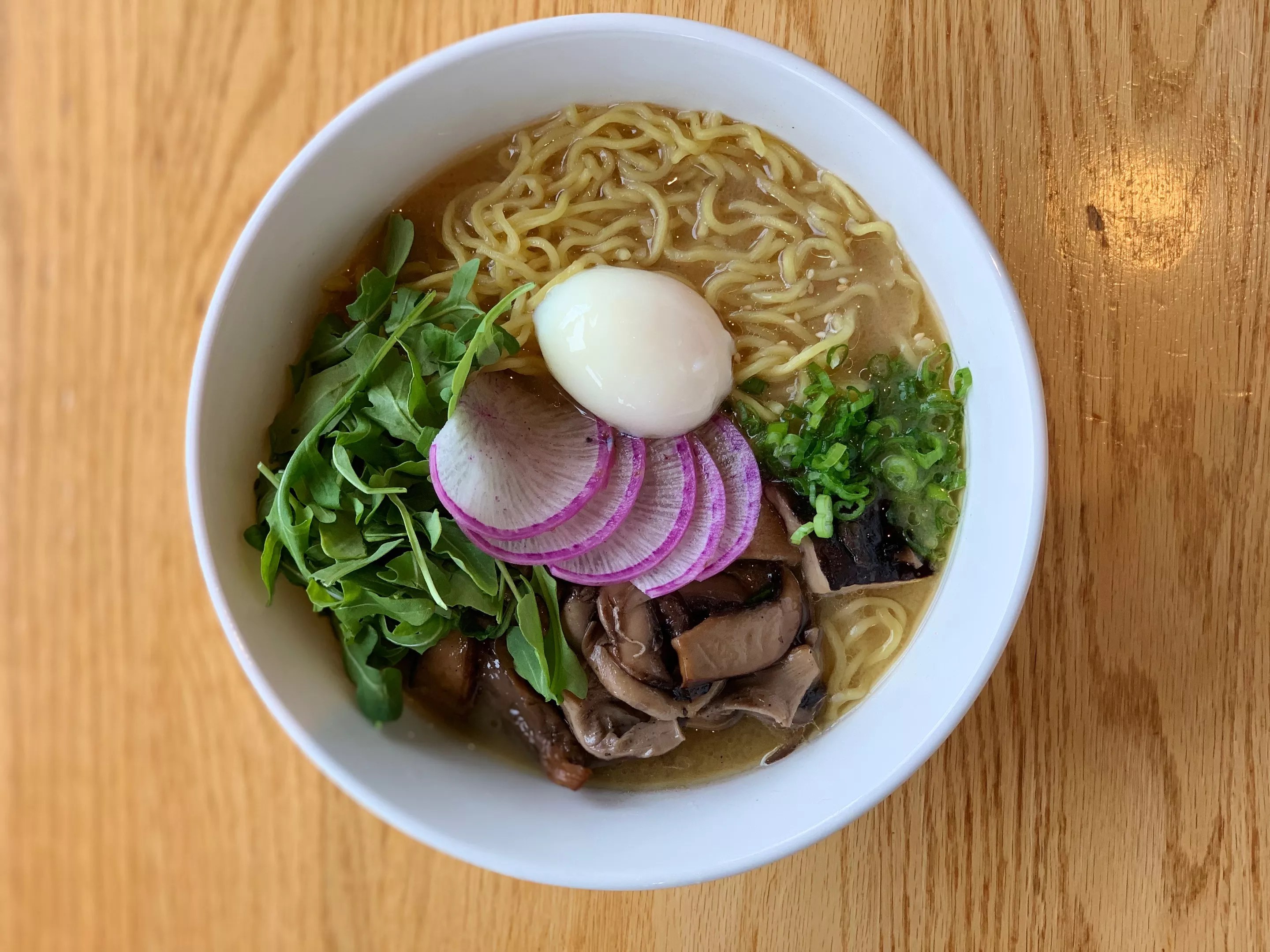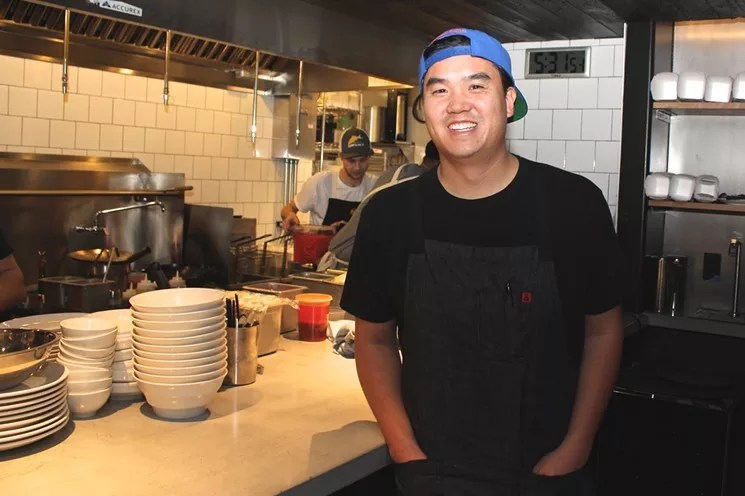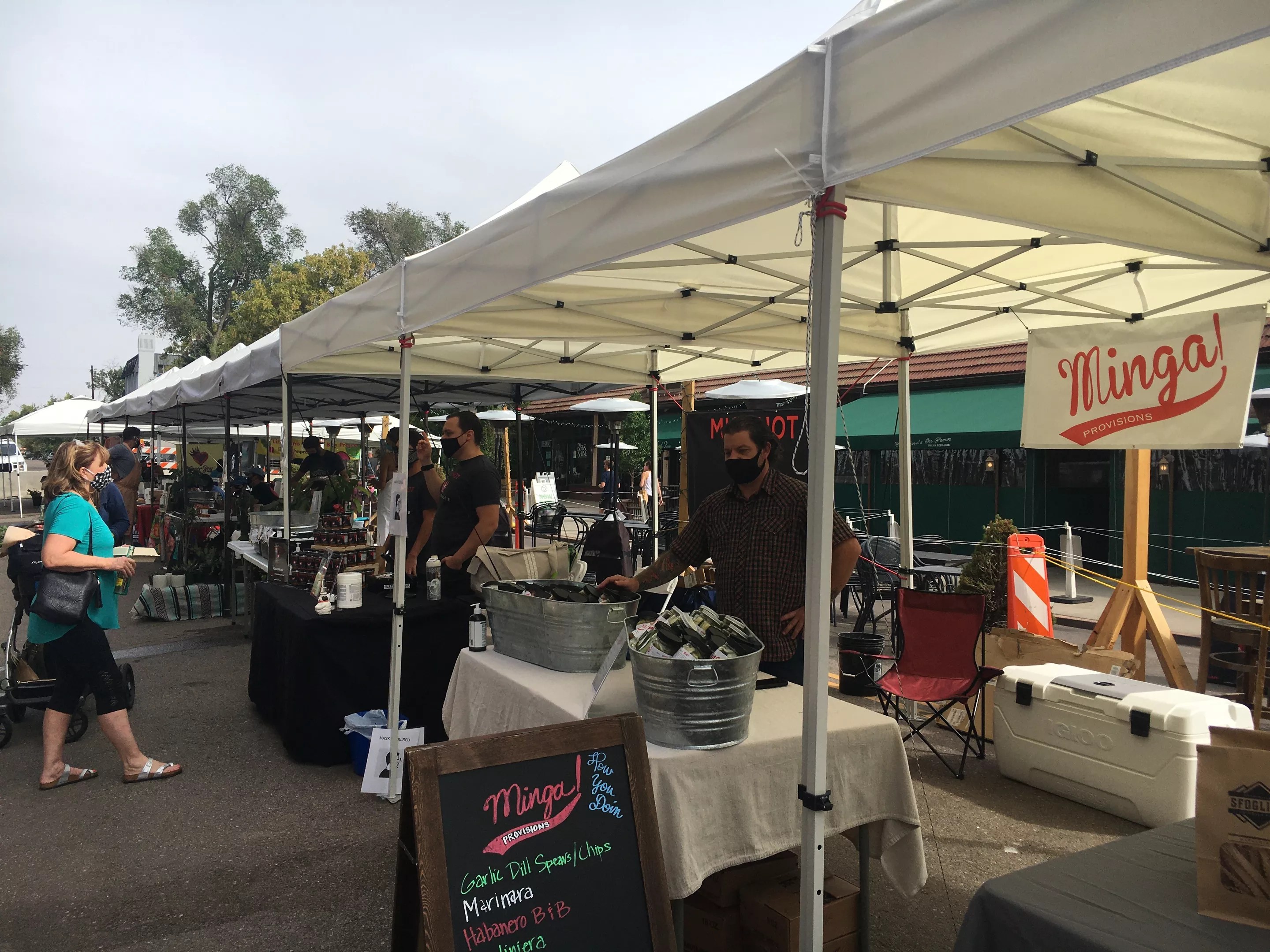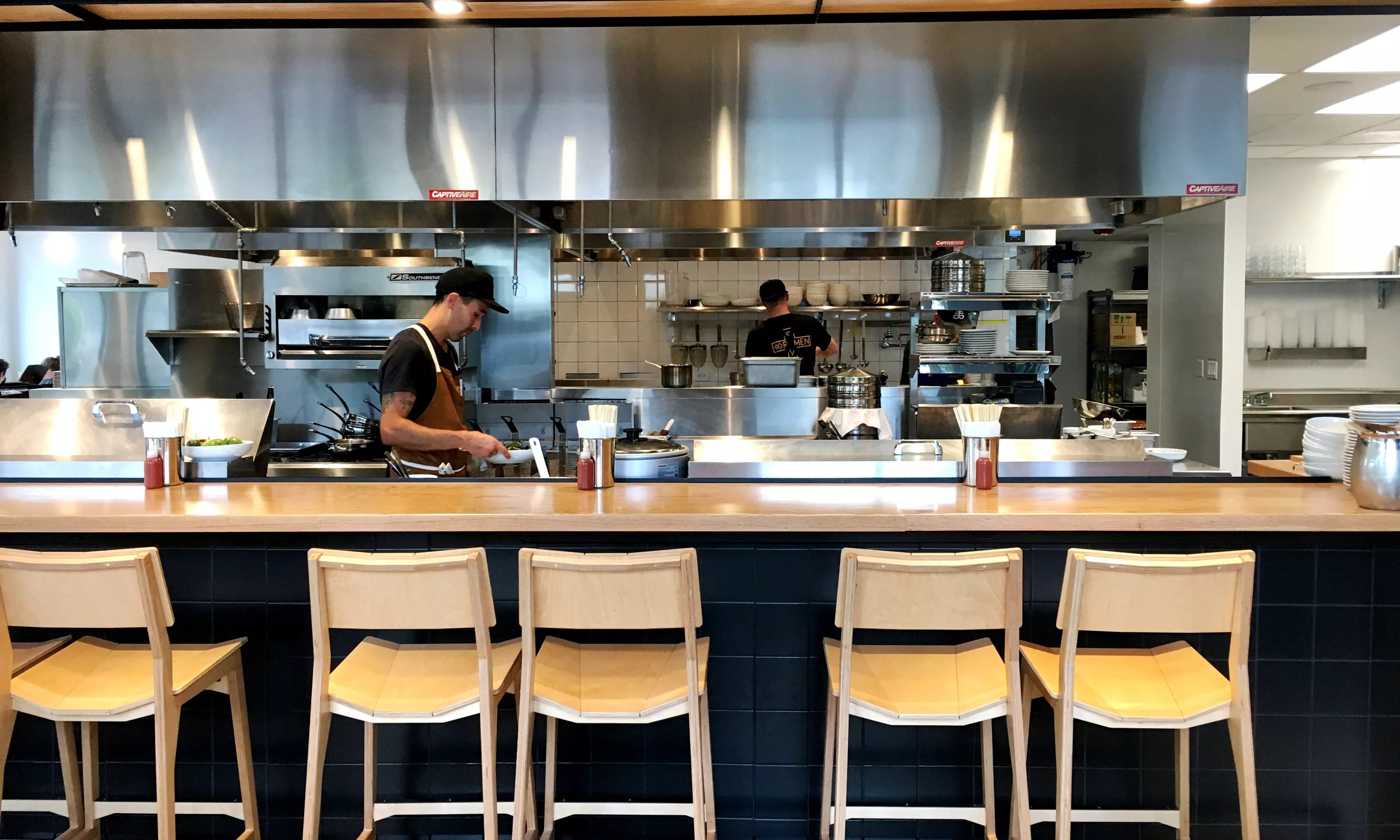
Uncle Ramen

Audio By Carbonatix
Restaurateur Tommy Lee has succeeded in the restaurant business by packing the house nightly at his three eateries: the original Uncle, at 2215 West 32nd Avenue; the newer version, at 95 South Pennsylvania Street; and Hop Alley, at 3500 Larimer Street. But Lee hasn’t opened the dining rooms at any of them since the pandemic began last March.
Even so, a combination of patio dining, takeout and delivery mixed with a Saturday street market on Pennsylvania Street, which was closed to through traffic as part of Denver’s expanded patio program, has kept business brisk. Here’s how Lee plans to keep his restaurants going – and his employees paid – until the crisis is over:
Westword: How has revenue been affected over the past seven months at your three restaurants? Were the effects similar or different at all three?
Tommy Lee: Revenue dropped anywhere between 15 to 50 percent depending on the week of the pandemic. Uncle Highlands and Uncle West Wash Park was fairly steady due to our strong takeout program. Hop Alley was affected most, as we had okay takeout business in the past, and was affected even more as the restrictions were lifted and restaurants were allowed to reopen for indoor dining. All three restaurants are pretty small spaces, so I’ve never felt safe to allow indoor dining. We’ve stuck to our guns of takeout and outdoor dining for the safety of our staff.

Tommy Lee at the opening of Hop Alley in 2015.
Linnea Covington
How have you had to adjust your menus and service to adapt to new restrictions and changes in the supply chain?
At Uncle, we condensed the menu a bit, getting rid of some more perishable items that weren’t great as takeout items. We also ran some $10 noodle bowl options and $5 steamed bun specials during the summer to bump our traditionally slower season. At Hop Alley, we ran more one-off dishes, which seemed to get people excited about ordering from us more often. Some of our suppliers also had excess product to unload, which we’d build specials around. We also tried to focus on takeout cocktails, because we have the boba cup-sealing machine. And, like everyone else, we had to adjust our service to decrease customer exposure and keep our spaces as safe as possible.
Were there any specific changes in regulations that helped recover some of your customer base (takeout liquor, expanded outdoor seating, etc.)?
Expanded outdoor seating has been the number-one most helpful regulation. We were able to provide as many seats outside as we normally had inside. We also saw a lot of new customers (for better or worse) as a large part of our normal customer base still was not comfortable dining out in any capacity. But even with outdoor seating, we’re only doing 50-75 percent of our normal cover count on any given night.
Have government programs or assistance from restaurant organizations been helpful to you?
We secured PPP loans for all three restaurants, which was a huge help. I’m not sure where we’d be right now without it. Even though the forgiveness process hasn’t been finalized 100 percent, we were able to keep most of our staff employed, pay them well and build a runway of revenue for the uncertain future. The Colorado Restaurant Association has been great with their emails informing us of new information and regulations [from the government].
Are there things that aren’t being done that you’d like to see happen?
I’d agree with most people, that the industry as a whole needs some sort of bailout. The restaurant industry employs so many people up and down the supply chain. If you save restaurants, you help save the economy, reduce a huge chunk of unemployment, save communities, etc., and at this point, we have no idea how long this will continue.

Tommy Lee launched the Penn Street market in front of his restaurant, Uncle, to help chefs sell their artisan products.
Mark Antonation
The Penn Street market on Saturdays has been a fun addition to the neighborhood. Has it helped your business, or is it something you did to help other chefs with their new projects?
It started as a fun community-building idea for some former and current employees that had side businesses. The street closure already set us up to run a market, and our GM, Cece [Jones], was happy to manage it. It was awesome to see something develop organically through like-minded struggle and hustle. More vendors came on through word of mouth from participation in other markets. It ended up being super fun! I think all the vendors have found value in collaborating with similar businesses. Not sure if it has helped our business, but ultimately it was to support creative people trying to get their small businesses off the ground. We charged vendors a very small fee, which helped recoup some of the money we spent on tents, tables and chairs for outdoor dining.

Customers haven
Mark Antonation
Are you taking any specific measures to get ready for winter?
We’re still not comfortable having people dine in our spaces, so we’ll go back to takeout and delivery. We’re hoping Uncle will be stable based on our food being cold-weather friendly and our traditionally strong takeout model. At Hop Alley, we’ll be getting creative – we have some fun ideas to keep people interested during the winter, like pop-ups at Exdo Event Center, daytime programs and more specials. We weren’t entirely confident in winterizing our outdoor spaces with some of the regulations the city has put forth.
What are your biggest fears over the next several months?
Ultimately, stability and safety. The COVID numbers are getting worse and worse. If business slows down a lot, that means layoffs and losses. We should be able to survive the winter, but the cash burn rate is so high with a restaurant, it’s hard to say what will happen; I do not have investors to lean on. People are also super-anxious about the election, as the outcome could have a huge impact.
Do you think the Denver restaurant scene will be able to bounce back from this?
I believe it will, but the winter could be really ugly. The community has been great at supporting their favorite places, but the chips are stacked against success right now. The constant pivot is getting really old (ha ha).
This is the second in our Coronavirus Chronicles series, talking with Denver area entrepreneurs, artists and others about how they’re weathering the storm. Have a suggestion for an interview? Send it to editorial@westword.com.